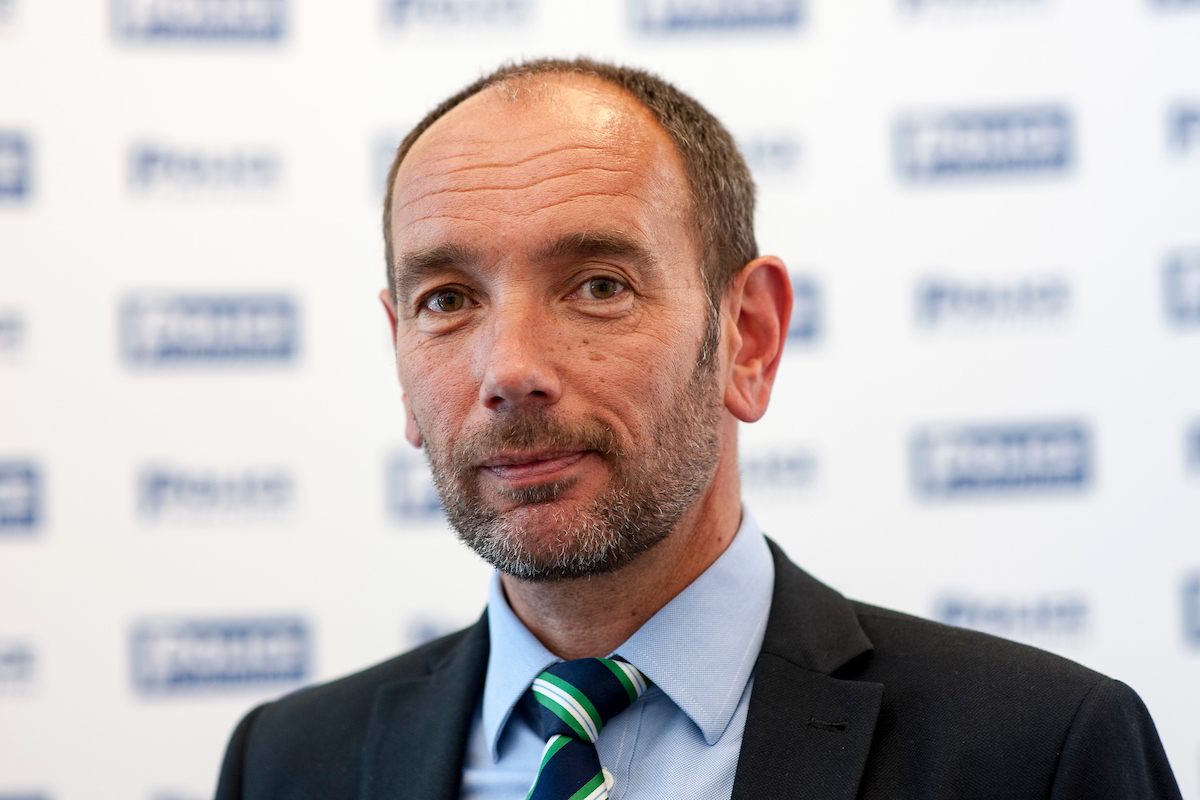
The new Chair of the Police Federation National Detectives’ Forum (PFNDF) wants to encourage more existing officers to become detectives in a bid to turnaround a national shortfall in detective numbers.
Staffordshire Police Federation Secretary Glyn Pattinson will combine his existing role with heading up the Forum – a job he is ‘really looking forward’ to.
Glyn knows there will be challenges ahead for the sector, especially around the 5,000-national shortfall in head count.
But he sees encouraging existing officers to become detectives as a potential solution to the problem.
“I want to carry on the excellent work that [former PFNDF Chair] Martin Plummer has done and I’m really looking forward to the role” he said.
“The forum is going from strength to strength - we’ve got representatives in at least 40 forces and there’s a whole host of issues including recruitment, welfare, resilience and retention.
“It’s really about looking after the staff we’ve currently got who may be serving in response roles or neighbourhood roles and we’re trying to actively encourage our serving police officers to make that next step to become a detective.”
That latter point is key to addressing recruitment issues he said.
“We’ve got a whole host of schemes up and down the country around direct entry, Police Now detectives.
“Sometimes for me, we’re not really addressing the primary problem of encouraging our original current cops to become detectives.
“Why do current police current police sergeants who are in uniform and response roles no longer want to become a detective?
“That’s the issue that we need to be addressing, not only as a forum but as the NPCC instead of trying to dream up the latest new scheme to get people into the world of detectives when you’ve got good people,” he said
Using cash incentives and targeted pay to drive more applications to the sector is not the answer to recruitment issues – welfare and resilience must be the first concern, he said, even though targeted pay is likely to part of this year’s PRRB pay recommendations.
Some officers also say they can’t take a pay cut to sign up to CID.
“I speak to a lot of uniform and response colleagues and some of them don’t want the role because it’s a pay cut, because they’ll lose their unsociable hours.” Glyn said.
“And it’s also difficult to pass a national investigators exam, they have to study in their own time. Some forces are very good, they provide a little bit of study time which again is something we would like to see cascaded up and down the country.
“But it is difficult. And then when you do achieve that detective status, as we all know, you’re then dealing with the most complex, the most demanding crimes that there are on the statute.
“So, it’s not as simple as using targeted pay although yes there is an argument for it to be part of any package.
“For me, it’s all about looking after their welfare, the resilience. A lot of detectives take a pay cut to come into the CID because they lose unsocial hours, but they will end up working long days, dealing with some of the most difficult and complicated crimes that there are out there, and that starts to take its toll on mental health as well as their physical health.
“So, if you can support them and make them feel more valued then they’re more likely to come in the first place they’re more likely to stay.”
Glyn also believes the appointment of NPCC National Lead for Investigative Resilience Matt Jukes as the Council’s Head of Pay of Conditions could be good news for the sector. South Wales Police CC Jukes will take over the role from departing CC Francis Habgood.
“I understand he’s also going to keep his detectives portfolio and South Wales have done really well in the way they’ve addressed and looked at the issues around detectives there,” Glyn said.
“A lot of it comes down to good supervision, good sergeants and inspectors all the way up to senior managers. We work long hours because we all want to get the job done. Some forces have got very good occupational health, very good counselling services, and it’s trying to get that best practice and spread it out across the forces.”
Being able to deliver real justice to victims is one of the most rewarding aspects of being detective.
“There’s been nothing better in my service than sitting in a Crown Court and hearing that someone has been found guilty of some horrendous crimes.
“It’s ultimately what I and many others joined the police service to do - to deliver good results to victims.
“I’ll be taking on this new role in the detective forum, but it will certainly not hinder or prevent me from doing any of the work that I do for Staffordshire members.
“That’s a role I really enjoy and will continue to do so.”








